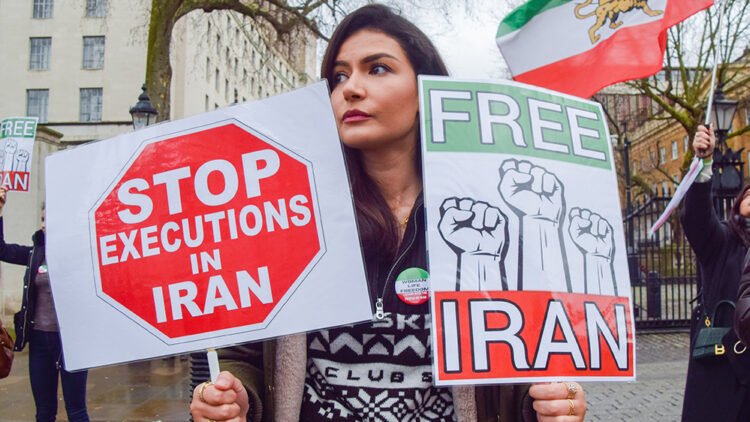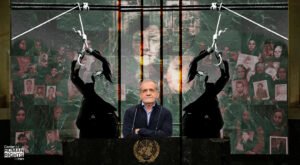Human Rights Watch, in its annual report on the state of human rights worldwide, has emphasized that the situation in Iran worsened in 2024 compared to previous years. This report, based on extensive evidence and various testimonies, paints a grim picture of systematic oppression, violence, and widespread human rights violations by the Islamic Republic of Iran.
Political Changes and Continued Repression
The report highlights the death of former Iranian President Ebrahim Raisi in a helicopter crash and the inauguration of Masoud Pezeshkian as president. However, this political change has not led to significant improvements in human rights and, in some cases, has exacerbated repression and violence.
Human Rights Watch identified eight major areas of human rights violations in Iran, including the oppression of women, ethnic and religious minorities, widespread executions, suppression of freedom of expression and assembly, and discrimination against sexual minorities.
Escalation of Executions: A Tool for Fear
Iran remains one of the countries with the highest execution rates globally. According to the report, more than 900 individuals were executed in Iran in 2024, with over 400 cases occurring in the first half of the year alone. Many of these executions involved child offenders and individuals convicted on vague charges like “acting against national security.”
One particularly shocking incident cited in the report was the mass execution of 29 individuals in Ghezel Hesar and Karaj prisons in August, exemplifying the gross injustices within Iran’s judicial system.
Suppression of Freedom of Expression and Assembly
In 2024, dozens of human rights activists, lawyers, students, and family members of protest victims were arrested. The report underscores systematic suppression of free expression in universities, documenting at least 30 cases of suspended or expelled students.
Although the new president promised to review the suspension and expulsion orders against faculty and students following the “Women, Life, Freedom” protests, the report notes that these promises have not been fully implemented, and repression continues unabated.
Women’s Rights: A Tool for Systematic Oppression
The “Hijab and Chastity” law, passed in 2024, introduced a 71-article framework imposing various punishments, including fines, imprisonment, and mandatory educational courses for women who refuse to adhere to mandatory veiling.
Additionally, Iranian women continue to face patriarchal laws regarding divorce, inheritance, child custody, and even travel. The report also highlights a surge in gender-based violence and so-called “honor killings,” attributing this to the government’s failure to protect women’s rights.
Ethnic and Religious Minorities: Victims of Discrimination and Violence
Ethnic and religious minorities, including Baha’is, Kurds, Baluchis, and Arabs, remain targets of systemic discrimination. Security forces frequently employ excessive and lethal force against Kurdish couriers and minority activists.
The report notes that two-thirds of imprisoned Baha’is are women and highlights the increasing persecution of this religious community.
Sexual Minorities: Ongoing Discrimination and Harsh Punishments
Sexual minorities in Iran face significant dangers. The Islamic Republic not only refuses to recognize LGBTQ+ rights but also continues to impose harsh penalties, including execution, for male same-sex relationships.
While gender reassignment surgery is legal and subsidized, the lack of anti-discrimination laws leaves transgender individuals marginalized and vulnerable to violence.
Judiciary: A System Devoid of Justice
Iran’s judicial system systematically relies on forced confessions, torture, and prolonged solitary confinement of detainees. The report stresses that detainees are widely denied access to legal representation and fair trials, while authorities refuse to investigate allegations of mistreatment and torture of prisoners.
The Islamic Republic: A Criminal, Anti-Human Regime
The report describes the Islamic Republic of Iran as a regime that not only violates the fundamental rights of its citizens but also actively uses lies, repression, and violence to maintain power domestically and export its ideology abroad.
Conclusion
The Human Rights Watch report clearly demonstrates that the Islamic Republic of Iran has no commitment to improving human rights and actively works to suppress and violate its citizens’ rights. The international community must respond with stronger measures, including targeted sanctions and efforts to hold Iranian officials accountable.

 English
English




























































